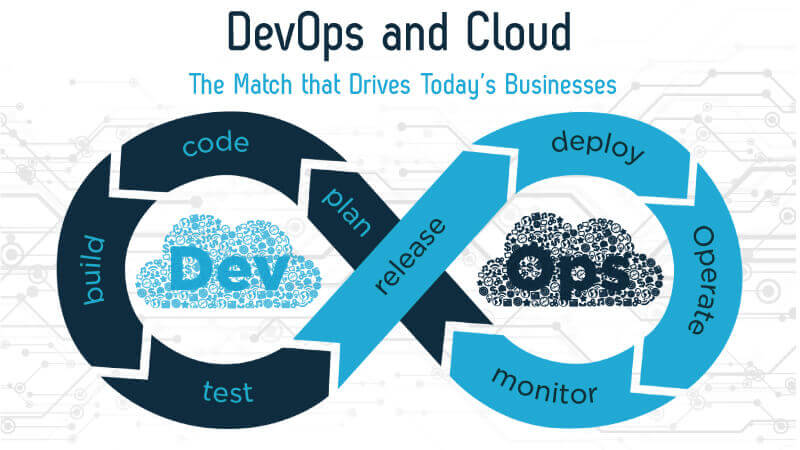- April 19, 2024
The Future is Now: Exploring the Impact of Cloud-Based DevOps

DevOps (Development and Operations) has been a game-changer in the world of software development and IT operations. It is a set of practices that combines software development (Dev) and IT operations (Ops) to shorten the systems development life cycle and provide continuous delivery of high-quality software. With the advent of cloud computing, DevOps has evolved even further, enabling organizations to leverage the power of the cloud to streamline their development and operations processes.
The Advantages of Cloud-Based DevOps
1. Scalability
- Cloud-based DevOps allows organizations to scale their infrastructure based on demand. They can easily add or remove resources as needed, ensuring optimal performance at all times.
- This scalability is particularly beneficial for businesses with fluctuating workloads or those experiencing rapid growth.
2. Cost-Effectiveness
- By leveraging the cloud for DevOps, organizations can reduce their capital expenditure on infrastructure and hardware. They only pay for the resources they use, leading to cost savings in the long run.
- Additionally, cloud-based DevOps reduces the need for physical infrastructure maintenance, further cutting down operational costs.
3. Collaboration and Communication
- Cloud-based DevOps tools promote collaboration and communication among development and operations teams, regardless of their geographical locations.
- Team members can access shared resources, work on projects simultaneously, and communicate in real-time, leading to increased productivity and efficiency.
Challenges of Cloud-Based DevOps
1. Security Concerns
- Security is a major concern when it comes to cloud-based DevOps. Organizations need to ensure that their data and applications are secure in the cloud environment.
- Proper security measures, such as encryption, access controls, and regular security audits, must be implemented to mitigate the risks associated with cloud-based DevOps.
2. Integration Complexity
- Integrating different tools and services in a cloud-based DevOps environment can be complex and challenging.
- Organizations need to carefully plan and implement their integration strategies to ensure smooth operation and seamless collaboration between development and operations teams.
3. Compliance and Governance
- Ensuring compliance with industry regulations and governance standards is crucial for organizations using cloud-based DevOps.
- They need to adhere to data protection laws, privacy regulations, and industry-specific guidelines to avoid legal ramifications and data breaches.
The Future of Cloud-Based DevOps
The future of cloud-based DevOps looks promising, with organizations increasingly adopting this approach to enhance their software development and operations processes. Here are some trends and advancements that we can expect to see in the near future:
1. Serverless Architecture
- Serverless architecture, also known as Function as a Service (FaaS), is gaining popularity in cloud-based DevOps.
- It allows developers to focus on writing code without worrying about server management, leading to faster development cycles and improved scalability.
2. Artificial Intelligence and Machine Learning
- AI and machine learning technologies are being integrated into cloud-based DevOps tools to automate repetitive tasks and improve decision-making processes.
- AI-powered analytics can provide valuable insights into performance metrics, identify bottlenecks, and optimize workflows for greater efficiency.
3. Kubernetes and Containerization
- Kubernetes, an open-source container orchestration platform, is becoming increasingly popular for managing containerized applications in cloud-based DevOps environments.
- Containerization offers portability, scalability, and consistency across different environments, making it easier for organizations to deploy and manage their applications.
Conclusion
Cloud-based DevOps is revolutionizing the way organizations develop, deploy, and manage their software applications. By leveraging the scalability, cost-effectiveness, and collaboration capabilities of the cloud, businesses can streamline their operations and deliver high-quality products and services to their customers. While there are challenges and concerns to address, the future of cloud-based DevOps looks promising, with advancements in serverless architecture, AI, and containerization shaping the way forward.
Submit A Comment
You must be logged in to post a comment.